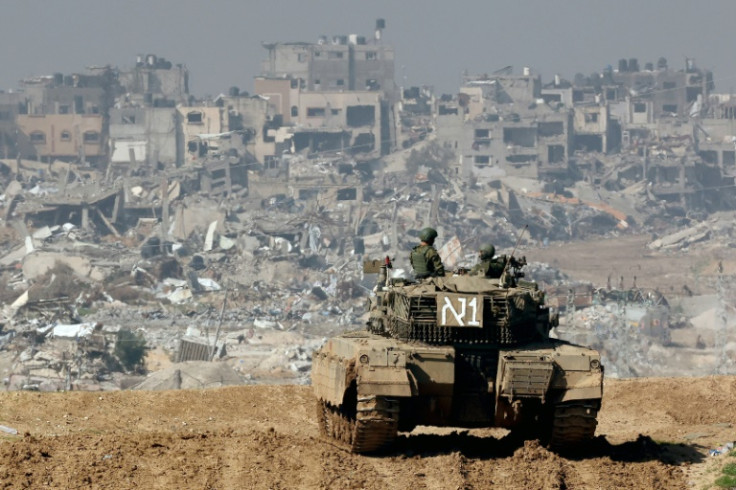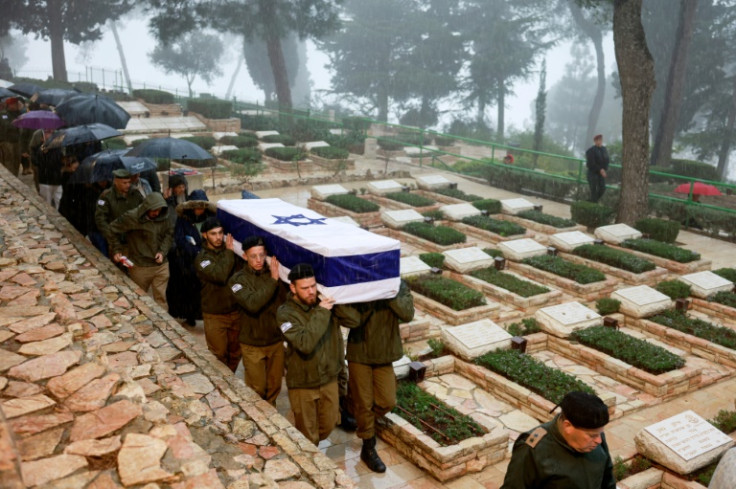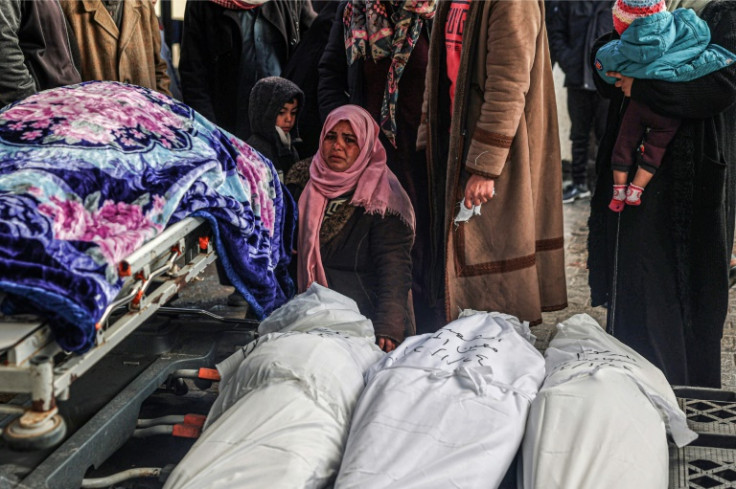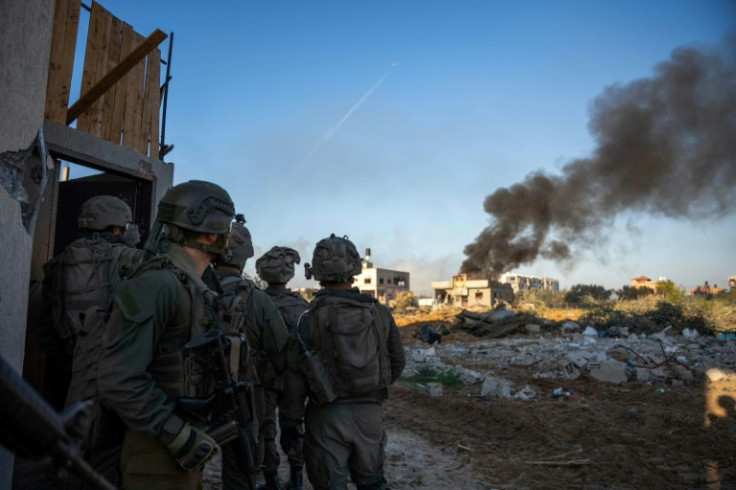
Heavy Israeli bombardment of Gaza overnight killed at least 125 people, the health ministry in the Hamas-run territory said Wednesday, against the backdrop of talks in Cairo aimed at reaching a truce.
As the fighting raged, the UN humanitarian agency OCHA said Israeli forces had issued fresh evacuation orders for a section of Khan Yunis housing an estimated half a million residents and displaced people.
The orders came as the World Food Programme warned Gazans were facing "catastrophic food insecurity", and as UN Secretary-General Antonio Guterres took Israel to task over its rejection of a two-state solution -- seen by ally the United States as the only path to a durable peace.
The heaviest fighting was taking place in Khan Yunis, the birthplace of Hamas's Gaza chief Yahya Sinwar, accused of being the mastermind of the October 7 attacks that sparked the war.
The Israeli military says it has "encircled" the southern city and that its troops were intensifying operations "in the area of the Khan Yunis (refugee) camp".
Gaza hospitals had received the bodies of 125 people killed overnight, the health ministry said.
The Hamas government said more than 200 people were killed, without specifying a timeframe.
It accused the Israeli army of forcibly displacing "tens of thousands" of people from Khan Yunis to Rafah, the city in south Gaza that abuts the Egyptian frontier.
The Palestinian Red Crescent said three displaced people were killed and three wounded when Israeli forces targeted its headquarters in the southern city.
The Gaza war began with Hamas's unprecedented October 7 attacks, which resulted in the deaths of about 1,140 people in Israel, mostly civilians, according to an AFP tally based on Israeli official figures.
In response, Israel has carried out a relentless military offensive that has killed at least 25,490 people in Gaza, about 70 percent of them women and children, according to the health ministry in the Hamas-run territory.
The government of Prime Minister Benjamin Netanyahu has come under mounting pressure from the Israeli public to end the war.
That pressure has mounted after 24 soldiers were killed Monday in the army's deadliest single day since it launched ground operations in Gaza.
Military spokesman Daniel Hagari said 21 of them were reservists killed "when a squad of terrorists surprised the force" with rocket-propelled grenade fire.
Citing Israeli officials, The New York Times said they died during an Israeli operation to demolish part of a Palestinian neighbourhood as part of a plan to create a "buffer zone" inside Gaza along the Israeli border.
The World Food Programme warned conditions in the territory were worsening.
"More than half a million people in Gaza are facing catastrophic food insecurity levels and the risk of famine increases each day," said the WFP's senior Middle East spokeswoman, Abeer Etefa.
UN chief Guterres, meanwhile, decried Israeli officials' repeated rejection of calls for the creation of a Palestinian state as "unacceptable", saying it "would indefinitely prolong" the conflict.
In Gaza City, people displaced by the war said they were stuck in a new conflict zone without provisions.
"They besieged us in the camp and brought us here, and even here, the shelling continued," Umm Dahud al-Kafarna, originally from Beit Hanun, told AFPTV.
"They have besieged us for six days, leaving us with nothing to eat or drink while bombing us from the air, sea and tanks."
US President Joe Biden's Middle East envoy Brett McGurk is in the region for talks aimed at brokering a new deal to free the remaining captives in exchange for a pause in fighting.
"Certainly one of the things he's in the region talking about is the potential for another hostage deal, which would require a humanitarian pause of some length," National Security Council spokesman John Kirby said.
"The conversations are very sober and serious about trying to get another hostage deal."
A Palestinian source familiar with the talks told AFP a Hamas delegation had arrived in Cairo on Tuesday to meet Egypt's intelligence chief and discuss new ceasefire proposals.
A source close to Hamas told AFP that the talks in the Egyptian capital were continuing on Wednesday.
The Gaza war has spurred fears of a wider escalation, with a surge in violence involving Iran-backed Hamas allies across the Middle East.
The US military said it carried out strikes on Iran-backed groups in both Iraq and Yemen overnight.
A spokesman for Iraqi Prime Minister Mohamed Shia al-Sudani sharply criticised the United States over the strikes.
"This unacceptable act" was contributing to "a reckless escalation... at a time when the region is already grappling with the danger of an expanding conflict," said Yehia Rasool, the Iraqi leader's spokesman for military affairs.
In Yemen, the US military said it destroyed two anti-ship missiles of the Iran-backed Huthi movement overnight, which had posed an "imminent threat".
In Lebanon, the Iran-backed Hezbollah movement said Tuesday it struck the Israeli air control base of Meron for a second time in recent weeks, in response to Israeli "assassinations" and attacks on civilians.
Israel's military said it struck several locations in Lebanon on Tuesday, including a "military asset" used by Hezbollah and "operated by Iranian forces".
The army also said reservists killed a "terrorist" who opened fire on them in the occupied West Bank.










